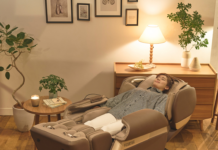Matthew Dunster, MD of Digital Home Visits Group, says a change is urgently needed – so what would happen if we actually truly combined Health and Social care?
News that the NHS has lost 25,000 beds in the UK over the last decade means it’s vital that the Health and Social Care system is efficient and fit for purpose – discharged patients desperately need it. Furthermore, a beleaguered government rolled out the faithful old fallback of committing to improve the NHS to divert the headlines away from other matters. It is clear that ‘NHS’ is an electoral buzzword, and ‘Social Care’ doesn’t factor into the public consciousness. But there’s an enigma: the success of the ‘Health’ bit is somewhat at the mercy of the effectiveness of the ‘Social Care’ bit.
Even though the recent National Insurance hike was billed as a measure to help Health and Social Care, the ‘Social Care’ part of the sector won’t see any of the cash, at least in the short term.
But the issue is not just about cash. What the government needs to do now is reform Health and Social Care. Pay and funding is often brought up as a key issue. It’s crucial of course, but it isn’t the only solution required. Even if the sector received another 20%, which the government can’t afford, there’ll be further obstacles.
So what’s the solution? Investing more money in technology, looking at population demand and making care contracts more attractive to companies would be a move in the right direction. Think long term: spend £1 now to save £2 later. But the one thing I’d advise the government is to put social care in the same house as Healthcare, with the Health Authorities.
At the moment, Local Authorities are doing their best, but the care landscape has changed over the last decade and their hands are tied on so many issues. Ten years ago, domiciliary care meant going round to check on people and making sure they could get into bed, but now you’d have to show you have high needs to qualify for care funding. Back then, anyone with high needs was in a residential home but now there’s a shift towards keeping people in their own homes as we know it’s better for them and their families. Things have changed and it makes sense to question whether Local Authorities are still the best place to control that funding.
This is not a criticism of those employed in the Local Authorities. There are many talented people working there, but they’d be more effective if everyone was in the same working space, dealing with the same overall budgets.
Right now, there are many people in hospital beds awaiting social care packages to be commissioned by Local Authorities, who cannot find enough funds to entice care providers to deliver them. Although the Local Authority is the party struggling to meet their obligations, the pain is really felt by the NHS hospital that has to continue to provide the bed to those individuals. This disconnect between malfunction, (no community care provision) and the resulting pain, (a blocked hospital bed) is not conducive to any game-changing solutions. It’s like having a restaurant with one company running the kitchen and another entirely separate one managing the front of house staff.
Transfer control and those talented Local Authority staff to the Health Authority, so they can collectively see the entire picture. They would likely move more funding into social care and give people a better pathway; and they’d spend less money overall. They would more readily address the issue of spending over £400 a night to keep someone in hospital, when less could be spent further down the chain to totally avoid the cost and the individual impact.
Some would argue that collective commissioning and joint budgets such as the Better Care fund are examples of how this is already happening. However, this bush beating is arguably ineffective, and only serves as an indicator towards the right direction and destination.
Help keep news FREE for our readers
Supporting your local community newspaper/online news outlet is crucial now more than ever. If you believe in independent journalism, then consider making a valuable contribution by making a one-time or monthly donation. We operate in rural areas where providing unbiased news can be challenging. Read More About Supporting The West Wales Chronicle


























